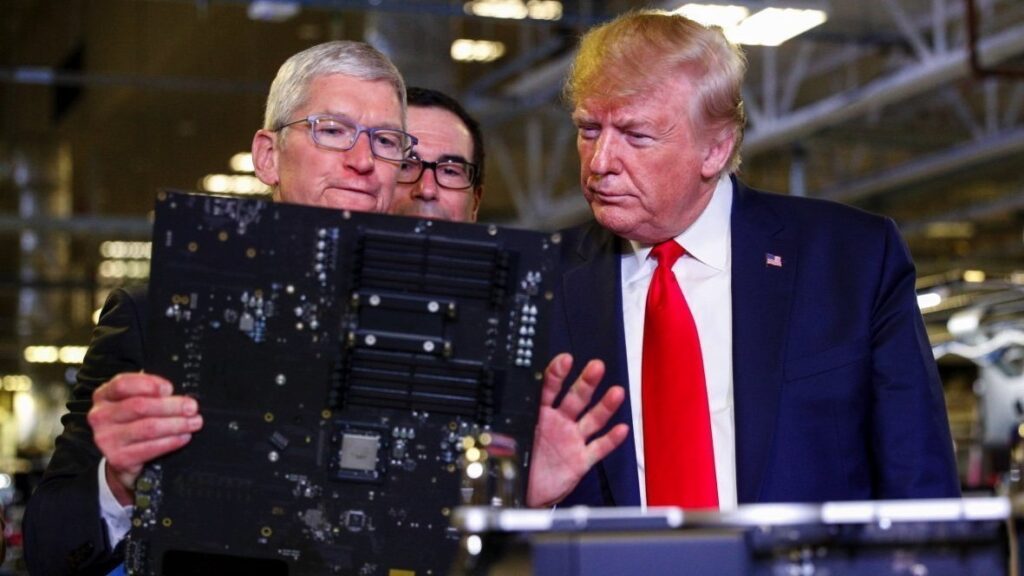
Apple CEO Tim Cook [left] with Donald Trump [right] at a Mac Pro factory

The Trump administration is once again pressuring Apple to ditch China — but its vision for U.S. iPhone production doesn’t quite add up.
On Monday, Peter Navarro, trade advisor to the Trump administration, criticized Apple for not manufacturing the iPhone in the U.S. He accused CEO Tim Cook personally of dragging his feet on the project.
“Going back to the first Trump term, Tim Cook has continually asked for more time in order to move his factories out of China,” Navarro said in an interview on CNBC’s “Squawk on the Street.”
“I mean it’s the longest-running soap opera in Silicon Valley.”
Apple can’t just “reshore production”
With the way Navarro talks, one would assume that Apple is simply digging its heels in to spite Trump. However, it’s really not that simple.
Analysts and supply chain experts have balked at the idea of Apple moving its manufacturing and assembly operations to the United States. Many believe that a U.S.-produced iPhone could cost upwards of $3,500.
For our part, we don’t think it’s possible either. After all, the United States has spent the last half-century moving production out of America, with multiple adminstrations’ blessing.
Even assuming that the US had the infrastructure and education to do it, reshoring it certainly wouldn’t happen in the short term. For instance, it took nine years from the first rumors of a shift to manufacturing in India to actual production. And, even now, assembly volumes are paltry compared to China.
And yet, Navarro remains firm in his stance. Like many others, he assumes that the answer is in automation.
“With all these new advanced manufacturing techniques and the way things are moving with AI and things like that, it’s inconceivable to me that Tim Cook could not produce his iPhones elsewhere around the world and in this country,” he told CNBC.
Naturally, this is a case of having one’s cake and wanting to eat it too. The Trump administration says it wants to reshore production to increase jobs for American workers.
However, when price increases are mentioned, the administration has simply responded that artificial intelligence and automation would drastically cut down on labor cost. This, of course, would necessarily cut down on available jobs, too.
US officials have previously said that iPhone manufacture in the US was mostly about screws, which is a gross oversimplification. Besides the cost of labor, and the consequent price increase in phones that would result, US officials have also left out the fact that US investment in education that would be required prior to this move continues to drop.




